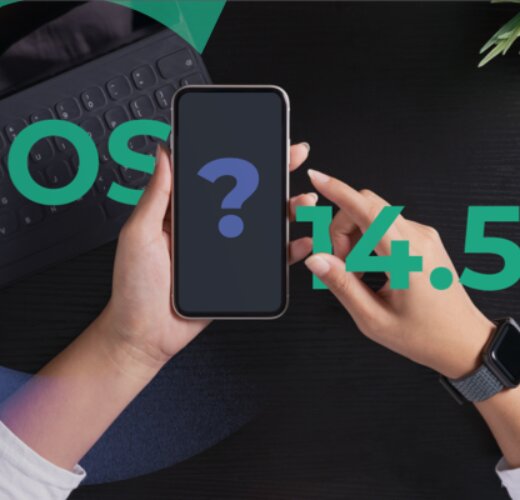Apple, the undisputed master of the granular update, has raised more than a few eyebrows with the rollout of iOS 14.5. With the debut of App Tracking Transparency, Apple has reversed the default position on in-app tracking from opt-out to opt-in.
It’s a move that’s elicited a mixed reaction. Advertisers and data brokers are understandably unhappy about this; overnight, their revenue models have been turned on their head. And on the other hand, unsurprisingly, the change has been warmly welcomed by not only civil rights and privacy groups but by the mainstream press, with the vast majority recommending that users update to the newest iOS version as a priority.
But it’s important to remember that as privacy becomes a greater part of our digital life, (and importantly so), we should be aware that moves such as Apple’s might also inadvertently begin to impact on existing security solutions.
Privacy or privation?
There is more at stake here than a loss of advertising revenue. This is the thin edge of the wedge; the entire concept of user tracking is set to go through some seismic changes in the year ahead. Google is forging ahead with its intentions to eradicate third party cookies from its Chrome browser by January 2022, a move that’s being set to be echoed by Mozilla’s Firefox and Apple’s own Safari Browser.
That other privacy-focused updates will emerge in the coming months is a certainty, so much so that Gartner have advised businesses to brace themselves for a period of sustained disruption. And that’s advice that businesses would do well to heed: Apple’s update and the trend that it’s part of have far-reaching implications that touch on a number of industry sectors in ways that aren’t always immediately obvious – or indeed beneficial – to the customer.
The simple “Yes/no” choice presented to users is just that – simple. It doesn’t inform them of any of the security implications of their decision, and these are going to vary hugely from app to app; a banking app is likely to have a more complex and far-reaching latticework of interdependencies than a casual game.
Financial organizations in particular prioritize security in their apps, utilizing rigorous authentication technologies to keep their customers safe and secure. Some of those rely on cookies and other privacy-intrusive mechanisms and so in the worst-case scenario, the user could be inadvertently disengaging the very mechanisms designed to protect them and their identity.
The potential problems extend beyond the bezel of the device itself. A user can have updates (like this latest from Apple) installed and running within minutes; a global enterprise can’t pivot their entire infrastructure quite as quick as that.
And as developers scramble to recode their apps to stay compliant with the new update, there’s the risk of problems arising from hastily implemented changes or incompatibilities.
A bank, for example, might experience serious pressure from just a 10% rise in failure demand; that’s easily enough to swamp a call center. And in turn, this can quickly lead to a loss of customer satisfaction, customer trust... and an increase in customer churn.
Crumbling cookies
Apple’s update has been in the pipeline for some considerable time. The feature was originally scheduled to release in September 2020, a date that Apple put back to give developers time to make the necessary changes. And prior to this, in January 2020 Google stated its intention to phase out third-party cookies in its Chrome browser by 2022.
Whilst Google have yet to respond to Apple’s leap ahead in the privacy game, it would come as little surprise if they and other stakeholders accelerate their plans. Either way, it’s the beginning of the end for conventional, unrestricted tracking methodologies, and the start of a period of sustained disruption.
For businesses, it’s a wake-up call for those who are still relying on outmoded methods such as cookies for their authentication journeys. With the writing on the wall, it’s time to look to a solution such as Callsign that will eliminate the need to prioritize privacy over security, or vice-versa.
A great many iOS users will be thinking about privacy and updating their devices right now. It’s quick and easy. And if you’re not offering that same assurance, they’ll also find it equally quick and easy to switch to a competitor who does.
And that’s reason enough to switch to a solution that’s immune not only to Apple’s changes today, but also to the global changes that are coming tomorrow: simple and easy to deploy, Callsign’s privacy-first technology helps businesses deliver passive authentication, whichever way the cookie crumbles.




